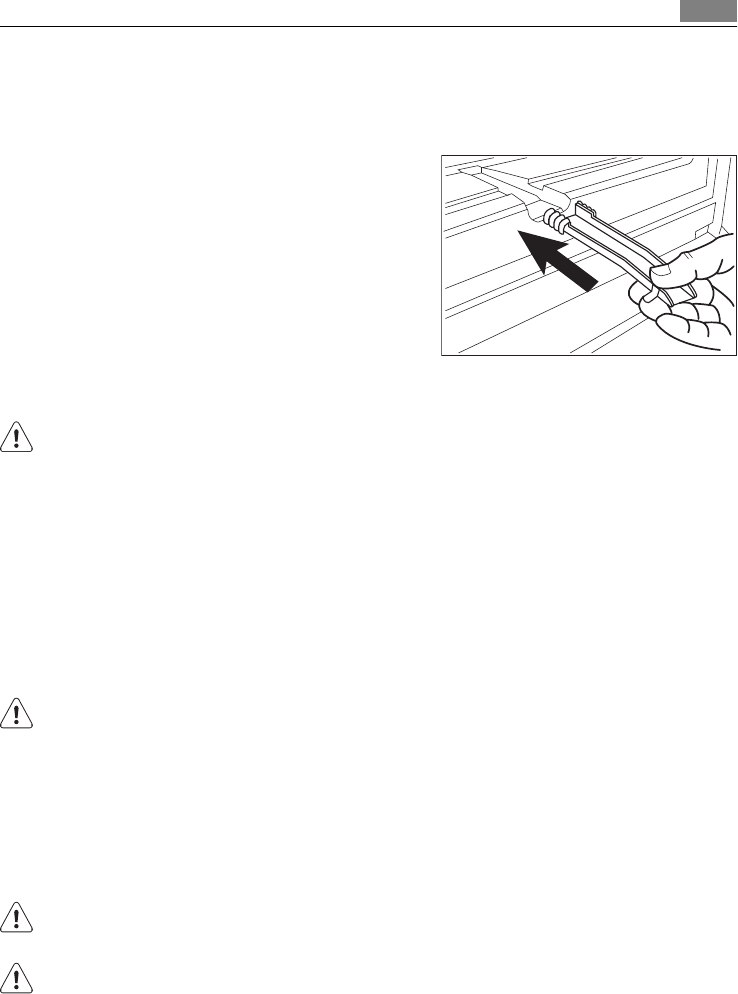
• remove the freezer drawers
• put insulating material around the drawers, e.g. blankets or newspapers.
Defrosting can be accelerated by placing bowls with hot water (not boiling) inside the
freezer.
• Loosen the drainage channel from its resting
position, push it in according to the illustra-
tion and place it in the bottom freezer draw-
er where water can collect
• carefully scrape off the ice when it starts to
thaw. Use a wood or a plastic scraper
• when all the ice has melted, clean and wipe
the cabinet dry, then put the drainage chan-
nel back in place.
• switch on the cabinet, insert the plug into
the wall socket and replace the frozen foodstuff.
Never use sharp metal tools to scrape off frost from the evaporator as you could damage it.
Do not use a mechanical device or any artificial means to speed up the thawing process
other than those recommended by the manufacturer. A temperature rise of the frozen food
packs, during defrosting, may shorten their safe storage life.
Periods of non-operation
When the appliance is not in use for long periods, take the following precautions:
1. disconnect the appliance from electricity supply
2. remove all food
3. defrost and clean the appliance and all accessories
4. leave the door/doors open to prevent unpleasant smells.
If the cabinet will be kept on, ask somebody to check it once in a while to prevent the food
inside from spoiling in case of a power failure.
WHAT TO DO IF…
During operation of the appliance some smaller but annoying trouble can often occur,
which does not require calling a technician out. In the following chart information is given
about them to avoid unnecessary charges on service.
The operation of the appliance goes with certain sounds (compressor and circulating
sound). This not means a trouble, but a normal operation.
The appliance operates discontinuously, so the stopping of compressor does not mean be-
ing no current. That is why you must not touch the electrical parts of the appliance before
breaking the circuit.
What to do if… 13


















